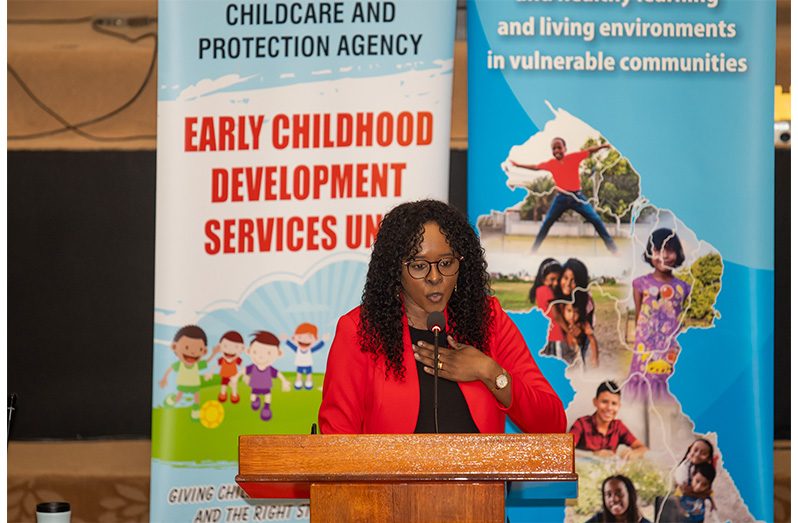Dr. Michelle Semple-McBean, an Early Childhood Development Specialist says early childhood development practitioners’ representation at the recently held conference is a testament to the fact that they are not only caregivers, but are facilitators, leaders, advocates and champions of early childhood development locally.
In her keynote address at the inaugural event, she told the professionals that they must remind themselves of who they are, as the notion of them being “less than” any other educator, is one of the most dangerous assumptions that impedes the development of young children.
“The majority who realistically must be in the actual early childhood setting and institutions are placed in a position that assumes we are less than. Less than the others. Less than those operating at the primary and secondary school or at the college and university level,” Semple-McBean said.
She continued, “The workers in our childcare facilities are critical to maintaining the core function of our society, of our economy. We could only sparingly afford to remove a handful,”
The specialist said the prevailing attitude of most in the Guyanese society towards daycare facilities, for example, is that it is merely a place where one leaves their children while they go to work. The narrative, she expressed, is that caregivers are babysitters for parents’ offspring, where nothing happens at daycare except play, and caregivers receive no training or that no training is necessary.
Semple-McBean posited that many parents who were satisfied with this approach were unaware of the damage that could be done to their children in the hands of untrained practitioners/ caregivers.
She recalled that the misconception in her community when she was new in her career, was that qualified people do not teach at the early childhood development level of the education sector. Semple-McBean opined that some sections of society still remain opposed to the invaluable contributions made by these professionals.
According to the specialist, this reason, and many others, prompted those responsible for training and developing the early childhood workforce to take immediate action at the local level.
They agreed that the workshop-type training available to caregivers in Guyana, at that time, was not sufficient to provide them with professional skills, qualification, or status, associated with their colleagues trained to operate at the higher educational levels, she said.
In 2010, a certificate programme was launched at the University of Guyana. Key elements of these included methods of stimulating the senses, promoting activities for motor development, behavior management, and laws and regulations governing early care, among others.
Alongside the United Nations Children’s Fund (UNICEF) commitment to upholding the Caribbean Community’s (CARICOM) focus on early childhood development standards by 2028, UNICEF was prompted to commission the development of a professional training programme which gives workers comparable qualification status to those trained at the teacher’s training college.
She reminded that with the introduction of public funded education by the Government of Guyana, the certificate programme for the early childhood development practitioner is now offered through the University of Guyana’s Institute of Distance and Continuing Education (IDCE).
In closing, Semple-McBean said, “We who serve in early childhood institutions, are more than just caregivers, we are more than just teachers. We are that force that the legendary Maria Montessori described as gate-keepers of the future when she stated that whoever touches the life of a child, touches the most sensitive point of a whole.”



.jpg)








